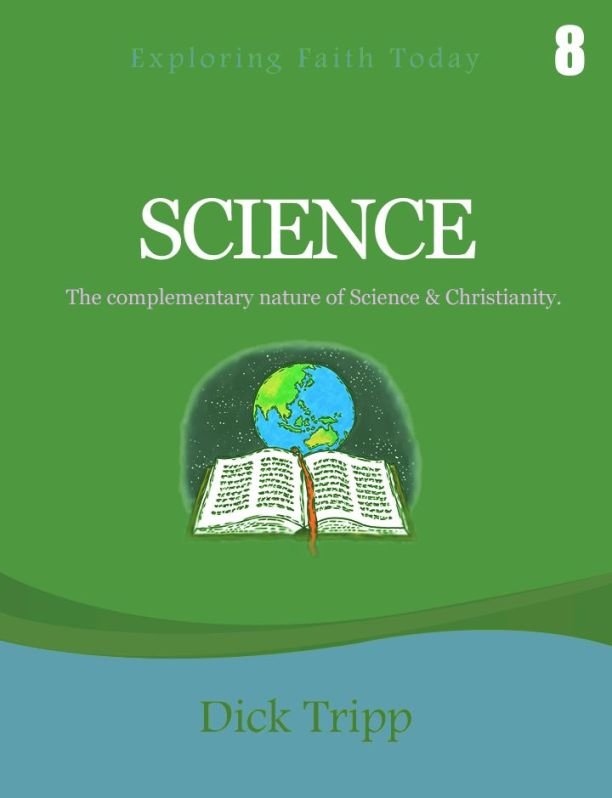Science
Chapters
FORWARD
Dick Tripp's thoughtful book explores the close historical relationship between science and Christianity, and shows, as the title rightly emphasises, the complementary nature of these two different means of understanding the world we live in.
When I was asked to write the foreword for this book, I pondered the attitudes of Christians to the topics discussed in it, and came to the somewhat surprising conclusion that many contemporary Christians appear to be afraid of science, especially the scientific study of the natural world. This seems to be because they perceive a conflict between their Christian faith and the findings of science, and fear that somehow their faith in the Creator of the world will be weakened or destroyed by scientific discoveries.
Conversely, some scientists are reluctant to look closely at Christianity-perhaps because they see it as irrelevant to their scientific philosophy. Dick demonstrates very clearly that the roots of modern science are deeply embedded in Christian philosophy and worldview, and that anyone interested in or engaged in science should seriously explore this close relationship, especially given current debates about the nature and relevance of science.
Two of the aspects of science which cause particular concern to some Christians are the idea that the universe is very old, and the theory of evolution. Dick explores various interpretations of the first chapter of Genesis, and shows that devout, Bible-believing Christians can accept a vast age for the universe without in any way compromising their faith.
Dick also discusses the varied views held by both Christian and atheistic/agnostic scientists on aspects of biological evolution. He concludes that Christians who 'believe in the God of the Bible...still have the option of believing in his creation of the world through "natural" processes.'
As a geologist and paleontologist who spends much of my working life exploring the relationships between living animals and plants, and their fossil counterparts, I am awed by the vastness of geological time in the same way that anyone who studies astronomy must be deeply impressed by the vast distances in space. My Christian faith is enhanced by what my studies show of the magnitude of the world that God created and sustains, and what they reveal of the majesty of the Creator.
Many scientists of the past (and present), have gone about their scientific studies of astronomy, physics, chemistry, geology, zoology, et cetera with the belief that they are thinking God's thoughts after Him. As the psalmist says, "Great are the works of the Lord, pondered by all those who delight in them."
Read Dick's book with this in mind. The so-called warfare between science and Christianity is a myth propagated by a small number of people committed to various alternative worldviews and has little to do with either science or Christianity.
I strongly recommend this clearly written and presented account of the close and complementary relationship between Christianity and science. It will help Christians appreciate science in a new way, and provides a fair and balanced perspective on the Christian view of the world for scientists who are seeking to explore the relationship between science and Christianity.
Daphne E. Lee BSc (Hons), PhD (Otago), Lecturer in Geology, University of Otago



